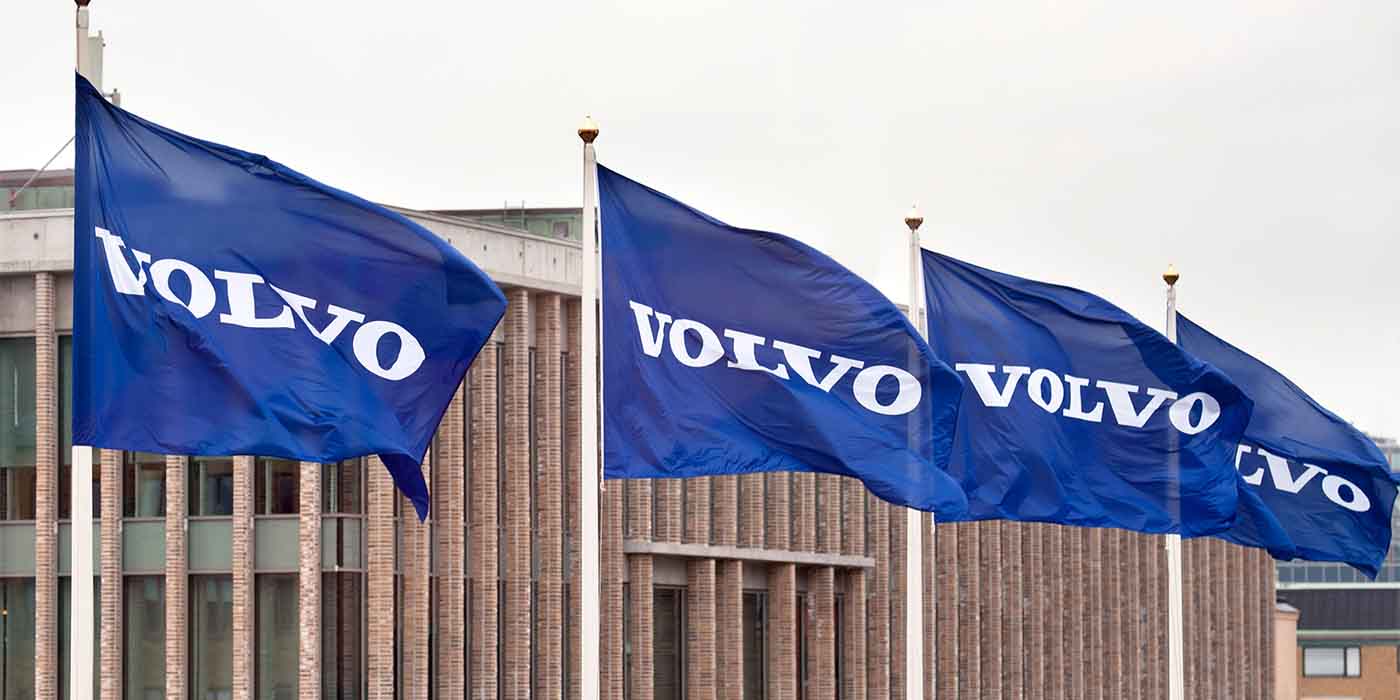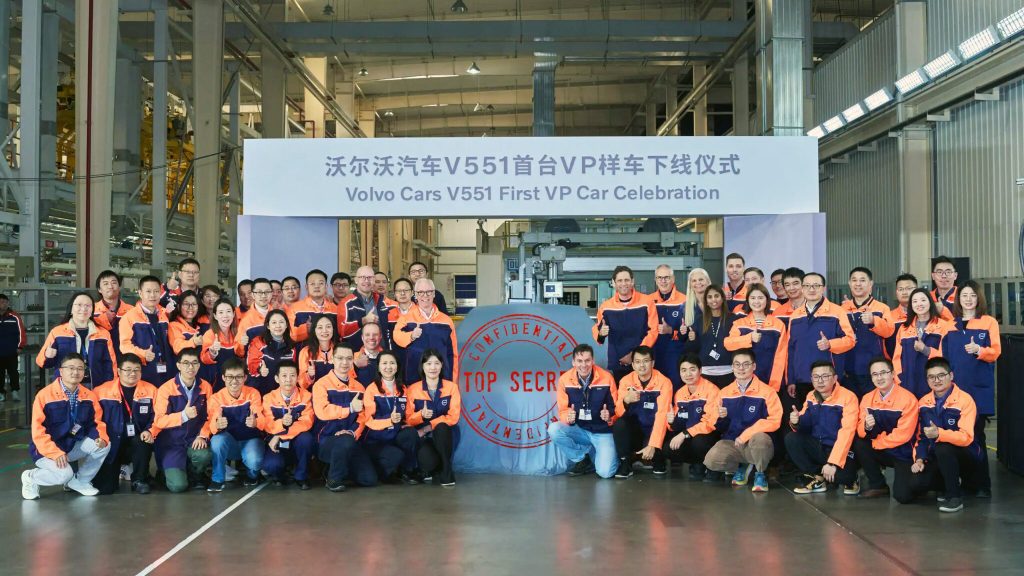Volvo’s first EV sedan to launch with 111 kWh battery… in 2025


Volvo has begun prototype production of its next-generation luxury electric sedan, possibly called the ES90. The V551, as it’s internally known, will be built in China. This information comes via a leak from Volvo’s own internal board, with a photo of the V551 team proudly kneeling next to a giant “CONFIDENTIAL TOP SECRET” sign below a banner with the text “Volvo Cars V551 First VP Car Celebration.” Seems like pretty solid confirmation to us!
The news was initially reported by Swedish outlet TeknikensVärld. There are some noteworthy tech specs included, like a 111 kWh battery (107 kWh available), 600 km of range (372 miles), 3100mm wheelbase, 2600kg curb weight (around 5700 lbs), and two drive configurations: dual-motor all-wheel drive and single motor rear-wheel drive. According to the article, Volvo allegedly plans to start producing the ES90 in May 2024 (presumably, they mean pre-production), though retail availability isn’t planned until mid-2025.

The specifications of the ES90 would place it on the larger side of mid-size EV luxury sedans like the Mercedes EQE, BMW i5, Tesla Model S, and Lucid Air. As for the range, that number actually seems pretty realistic given the battery capacity and anticipated weight of the car, though we’re obviously a long way off from validating that in reality.
Volvo is investing heavily in electrification, and this car will supposedly be the first Volvo developed entirely by the company’s China-based R&D team. While many of Volvo’s electric models are built in China, including the EX30 we just drove, the company has retained a large engineering and design contingent in its home country of Sweden to date.
City Dwellers’s Take
Sedans are a tough sell in a crossover-first world. While a lot of folks online may clamor about their increased aerodynamic efficiency and lower rooflines, most consumers are currently SUV and CUV-crazy. The fact that Volvo has prioritized efforts like the EX30 and the upcoming EX90 is not at all surprising, and speaks to the decline of the sedan globally.
Still, there is space for a luxury sedan out there — Mercedes, Audi, BMW, and Porsche all produce high-end EV sedans, and these are the brands Volvo has traditionally positioned itself against as a “value” competitor, offering class-leading safety and comparable tech features at a lower price than the Germans.
Mid-2025, though, is a long ways off, and I suspect 372 miles of range won’t be all that impressive in a year-and-a-half. Will Volvo introduce an 800V architecture with this car? Will there be leading-edge autonomy features? Can it greatly undercut the existing luxury EV sedan space on pricing? There are a lot of unknowns here, and it seems we’ll be waiting a while to answer them.
FTC: We use income earning auto affiliate links. More.